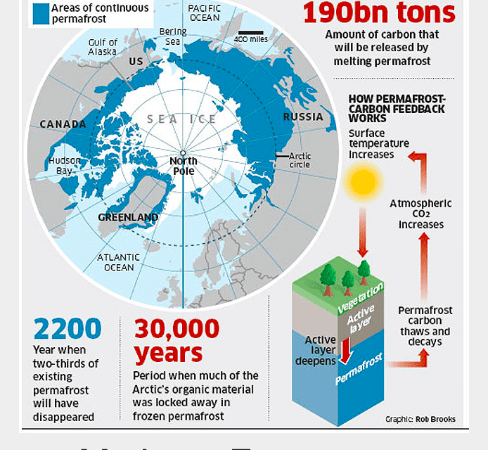2 days ago, the Alliance of World scientists, which number over 15,000 individuals declared a Methane Emergency http://www.scientistswarning.
The Methane Mystery
According to NASA, “what we know for sure is that a lot more methane (CH4) has made its way into the atmosphere since the beginning of the Industrial Revolution.” Human activity has increased the amount of methane, similarly to carbon dioxide (CO2) in the atmosphere, contributing to climate change. We know this because methane concentrations in the atmosphere have gone up ~150% since the preindustrial age. Methane has long been considered a harbinger of climate catastrophe.
Methane is known to have a greater greenhouse gas (GHG) warming factor than CO2, a potential of 34 times that of CO2 over 100 years according to the latest IPCC Assessment Report. Just to put this into perspective over several time frames the IPCC AR5, widely cited as an authority on this matter, reports that the 100-year global warming potential (GWP) of methane is 34, the 20-year GWP is 86, the 10-year is 99, and the 5-year GWP was found to be 115. However, more recent studies have found that in the very short term, up to 6 weeks after its emission, the heat-trapping effect of methane is as much 258 times that of CO2. Even more recent research has upped the GWP of methane somewhat additionally, by around 25%.
Even more troubling is that recently, researchers everywhere are finding that methane readings globally are going bonkers to quote those reporting on this. Others are noting a surging trend and recently, shocking data has emerged showing global atmospheric methane readings literally going off the charts (video). But is this because of anthropogenic, natural or Arctic methane sources?
Conclusions
All of these questions need further research. In the meantime, scientists at Yale Climate Connections are asking that we begin to distinguish between the larger real-world methane threat already underway, and a theoretical methane monster. Climate models project a temperature increase of around 4ºC by 2100 if we fail to reduce greenhouse gas emissions, including methane — and that alone should present us with enough of a deeply troubling scenario to act now.
Despite the controversy over when or even if a methane monster might be unleashed, right now we know for certain that man-made emissions are contributing to warming that threatens to destabilize many environments, especially the Arctic. We can control man-made emissions. We just lack the political will to do so. However, if we do not curtail our emissions we may lose control of the natural world and once we do, there will be no turning back. We would do well to remember that what happened to the dinosaurs, can happen to us.
Uncertainties remain, however we must act on what we do know which is that we have entered a danger zone never before encountered by modern man. Most researchers agree that we must declare a methane emergency as well as a climate emergency now. It’s time to bring scientists, policy makers, and people together to focus on translating research into action.
Sadly, we are currently locked in a deadly stalemate as world leaders have never declared that climate change is even happening let alone that it is an emergency – which is why those seeking climate justice, such as eXtinction Rebellion, are demanding that elite powers tell citizens the truth about the disastrous situation we are facing. As a global species we are playing with fire while we lose the ancient ice that is our planetary cooling mechanism. If we continue on this path, the current indisputable evidence puts us on a fast track to a hellish, Venus-like greenhouse Earth.
The views and opinions expressed through the MAHB Website are those of the contributing authors and do not necessarily reflect an official position of the MAHB. The MAHB aims to share a range of perspectives and welcomes the discussions that they prompt.
